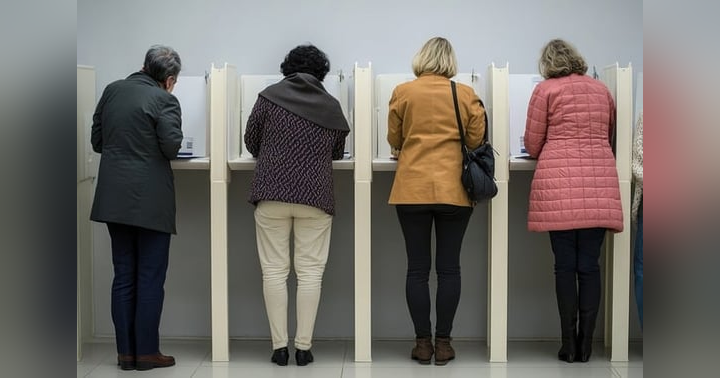Electoral College: Pros and Cons

In this blog post, we'll be diving deep into the complex and often contentious topic of the Electoral College. This system, established by the Founding Fathers, has shaped the course of American politics for centuries. But as our nation evolves, so too do the arguments for and against its continued existence. We'll explore the potential advantages, such as ensuring national representation and preventing a candidate from winning solely based on population density. We'll also examine its disadvantages, such as the potential for a candidate to win the presidency without winning the popular vote.
The Electoral College: A Foundation of Our Democracy
The Electoral College is a cornerstone of the American political system, established by the Founding Fathers as a compromise between those who favored direct popular elections and those who desired a more representative system. It's a unique and intricate system that has played a significant role in determining who occupies the Oval Office. It's important to understand how the Electoral College functions before diving into the arguments surrounding it.
Understanding the Electoral College System
The Electoral College is a body of electors established by the United States Constitution, constituted every four years for the sole purpose of electing the president and vice president of the United States. Each state is allocated a number of electors equal to the total number of senators and representatives it has in the United States Congress. The District of Columbia also receives three electors, equivalent to that of a small state.
The candidates for president and vice president who win the most votes within a state typically win all of that state's electoral votes, with the exception of Maine and Nebraska, which allocate their electoral votes based on the winner of each congressional district. Once the votes are tallied, the candidate who receives a majority of the 538 electoral votes (270 or more) is declared the winner of the presidential election.
Arguments for the Electoral College
Supporters of the Electoral College argue that it provides several benefits to the American political system:
Ensuring National Representation
Advocates of the Electoral College argue that it forces candidates to campaign in all states, not just heavily populated areas. They claim that this encourages candidates to focus on issues that are important to voters across the country, ensuring that the interests of smaller states are not ignored. This broadens the scope of political discourse and encourages candidates to address a wider array of issues and concerns.
Preventing Tyranny of the Majority
Another argument in favor of the Electoral College is that it prevents a single state, or a group of densely populated states, from having an overwhelming influence on presidential elections. By guaranteeing a minimum number of electors for each state, regardless of population, the Electoral College safeguards the interests of smaller states and prevents them from being marginalized by larger states.
Maintaining Federalism
Proponents of the Electoral College argue that it reinforces the principles of federalism. By ensuring that states have a significant role in the presidential election, it underscores the balance of power between the federal government and the states. This system fosters a sense of shared responsibility and cooperation between federal and state governments.
Arguments Against the Electoral College
While the Electoral College has its supporters, there are also compelling arguments against its continued existence.
Potential for a Candidate to Win Without Winning the Popular Vote
Perhaps the most well-known argument against the Electoral College is the possibility of a candidate winning the presidency without winning the popular vote. This has happened five times in U.S. history, most recently in 2016. Critics argue that this undermines the principle of "one person, one vote" and gives an unfair advantage to candidates who may not have the support of a majority of the electorate. It can create a sense of dissatisfaction and disenfranchisement among those who voted for the losing candidate, particularly when the margin of victory in the Electoral College is narrow.
Discourages Participation in Swing States
Because the focus is often on winning a handful of "swing states" with pivotal electoral votes, some argue that the Electoral College discourages voter participation in other states. The intense campaigning and media attention focused on swing states can make voters in other states feel like their vote doesn't matter. This undermines the importance of every vote and can lead to a decline in voter turnout nationwide.
Lack of Transparency and Accountability
The Electoral College is also criticized for its lack of transparency and accountability. The process of electing the president through a system of electors is opaque, with no clear mechanism for challenging the outcome of an election. It also allows for the possibility of "faithless electors," who may vote for a candidate other than the one they pledged to support. This raises concerns about the legitimacy and fairness of the electoral process.
The Future of the Electoral College: Debate and Discussion
The debate over the Electoral College is likely to continue for many years to come. It's a complex issue with no easy answers, and there are valid arguments to be made on both sides. Some advocates for reform propose replacing the Electoral College with a system of direct popular election, arguing that this would ensure that the candidate who receives the most votes nationwide wins the presidency. Others propose more modest reforms, such as allocating electoral votes proportionally based on the popular vote within each state, or creating a national popular vote compact, which would award all of a state's electoral votes to the candidate who wins the national popular vote.
Ultimately, the future of the Electoral College will depend on the political will to make changes and the public's perception of the system's fairness and legitimacy. As the nation continues to grapple with the complexities of its political system, the debate over the Electoral College is likely to remain a key issue in shaping the future of American democracy.
Conclusion: A Complex System with Lasting Impact
The Electoral College is a complex and nuanced system that has played a significant role in shaping the course of American politics. It has both benefits and drawbacks, and the debate over its future is likely to continue for many years to come. Whether you believe in its merits or its shortcomings, understanding the Electoral College is essential to understanding the American political system. To delve deeper into this fascinating and complex topic, listen to our latest podcast episode, Beyond the Ballot: How the Electoral College Shapes Our Democracy with Dr. William Choctaw and Attorney Bernie Brown where we discuss the history, complexities and future of the Electoral College system.




